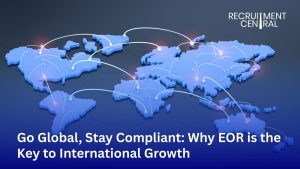Recruitment compliance and legal considerations are paramount in the modern business landscape. This comprehensive article delves into the intricacies of ensuring adherence to legal frameworks while recruiting top talent. Learn how organizations can navigate the complex realm of recruitment regulations while fostering a robust and diverse workforce.
Ensuring Recruitment Compliance: A Legal Imperative
The Nexus of Legal and Recruitment Worlds
Recruitment compliance involves aligning hiring practices with relevant labor laws, anti-discrimination regulations, and other legal mandates.
Mitigating Risk and Liability
Adhering to compliance safeguards businesses from legal repercussions and reputational damage.
The Regulatory Framework: Key Considerations
Equal Opportunity Employment Laws
Organizations must ensure fair treatment and prevent discrimination based on race, gender, age, and other protected characteristics.
Privacy and Data Protection
Handling candidate data requires compliance with data protection laws to safeguard sensitive information.
Immigration and Visa Regulations
For international hires, adherence to immigration laws and work visa requirements is crucial.
Navigating Legal Minefields in Job Descriptions
EEOC-Compliant Language
Job descriptions must avoid biased language and adhere to Equal Employment Opportunity Commission (EEOC) guidelines.
Accommodation Statements
Companies must include reasonable accommodation statements for candidates with disabilities.
The Interview Process and Legal Considerations
Avoiding Discriminatory Questions
Interviewers must steer clear of questions related to protected characteristics, such as marital status or religion.
Medical Inquiries and Disability Disclosure
Interviewers must refrain from seeking medical history or inquiring about disabilities.
Diversity and Inclusion: Legal and Ethical Imperatives
Affirmative Action and Diversity Programs
Affirmative action plans promote diversity by ensuring equitable opportunities for underrepresented groups.
Mitigating Bias in Recruitment
Implementing blind recruitment processes helps eliminate unconscious bias from selection.
Background Checks and Compliance
FCRA and Background Screening
The Fair Credit Reporting Act (FCRA) outlines rules for conducting background checks and notifying candidates.
Ban the Box Legislation
“Ban the Box” laws prohibit asking about criminal history early in the application process.
Managing Legal Considerations in Remote Hiring
Adhering to Cross-Border Regulations
Recruiting across borders requires navigating international labor laws and cross-border employment agreements.
Virtual Onboarding Compliance
Remote onboarding must adhere to relevant regulations and ensure data security.
How Recruitment Central’s Talent Acquisition Platform Helps Navigate the Process
Sourcing the right people is key to building strong teams. Recruitment Central’s Talent Acquisition Platform excels in this aspect. Our platform offers innovative tools and strategies to identify and attract top talent while ensuring compliance with legal requirements. Since 2003, we have partnered with clients in recruiting the very best candidates, helping them navigate the recruitment process effectively.
Conclusion
Recruitment compliance and legal considerations are foundational to maintaining ethical and legally sound hiring practices. Adhering to labor laws and regulations not only mitigates legal risks but also promotes a diverse and inclusive workforce. By understanding and embracing these considerations, organizations can build strong teams that drive success.
FAQs
Ques 1. Why is compliance essential in recruitment?
Ans 1. Compliance is crucial as it prevents legal repercussions and fosters an ethical work environment.
Ques 2. What are the consequences of non-compliance?
Ans 2. Non-compliance may result in financial penalties, legal disputes, and harm to the company’s reputation.
Ques 3. How can organizations stay updated on recruitment regulations?
Ans 3. Organizations can stay updated by working closely with legal advisors and monitoring industry changes.
Ques 4. What is the role of Equal Opportunity Employment laws in recruitment?
Ans 4. These laws ensure that candidates are evaluated solely on their qualifications and abilities, not personal characteristics.
Ques 5. How can companies ensure data protection during recruitment?
Ans 5. By using secure platforms, obtaining informed consent, and storing data safely, companies can ensure data protection.
Ques 6. What are the benefits of diverse recruitment practices?
Ans 6. A diverse workforce brings unique insights, enhances problem-solving, and contributes to a dynamic work environment.







